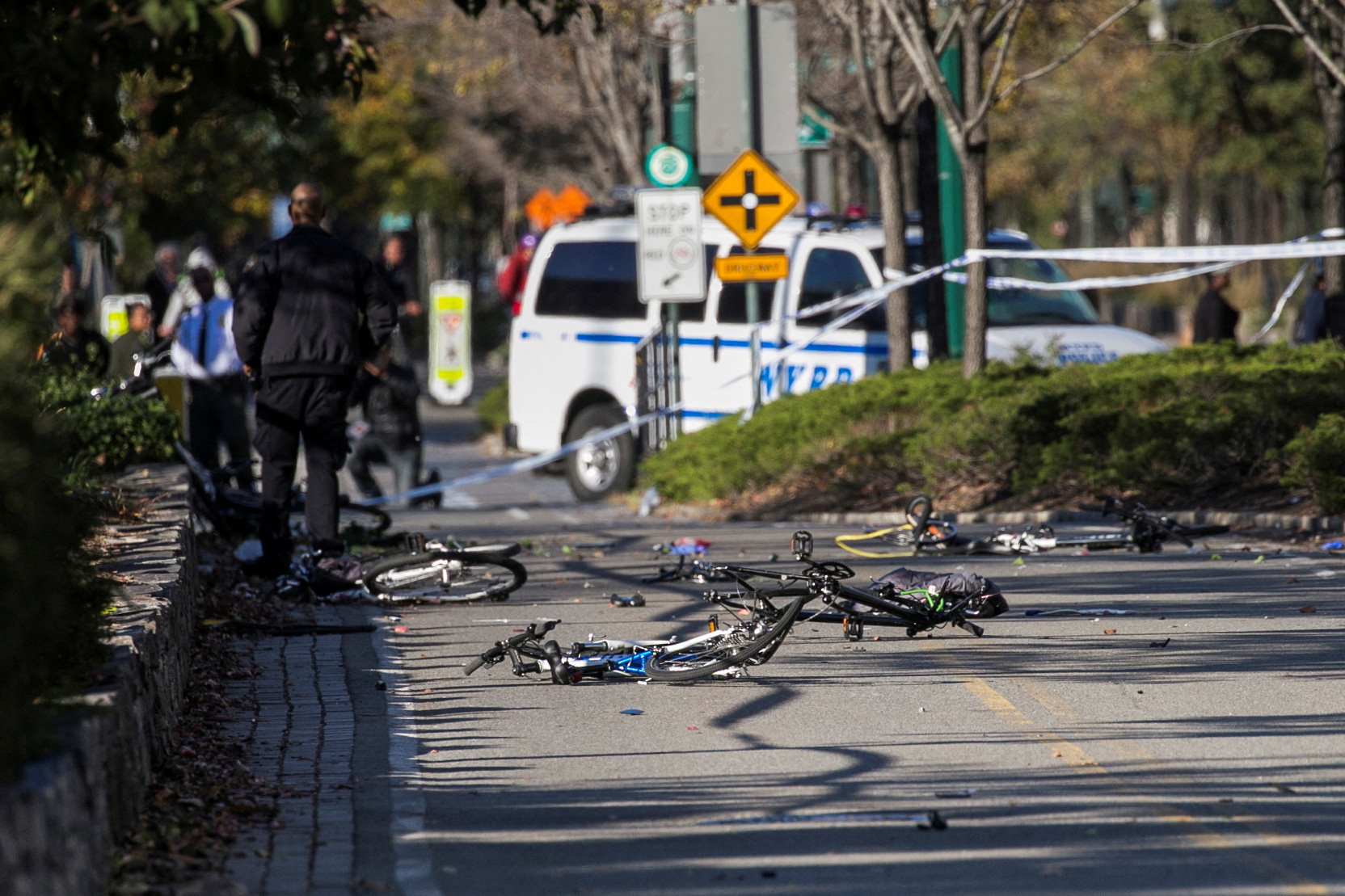
A man charged with using a truck to kill eight people on a Manhattan bike path in 2017 believes his attack was justified and sought to die a martyr for Islam, his defense counsel told the jury at his terrorism trial on Monday.
At the first federal death-penalty trial since U.S. President Joe Biden took office in January 2021, defendant Sayfullo Saipov, 34, acknowledged through his lawyers that he intended to murder and maim his victims and still believes he had a religious duty to do so.
The only point of contention with prosecutors was whether he carried out the attack in order to join the Islamic State militant group, also known as ISIS, which the United States brands a terrorist organization.
“That is not why he did this,” David Patton, a public defender representing Saipov, said in an opening statement at the U.S. District Court in Manhattan, saying Saipov was only inspired by Islamic State, and not planning to survive his attack and join as a member. “He expected to die. He expected to become a martyr.”
Most of the charges in the 28-count indictment include as an element that Saipov committed murder and attempted murder in order to join Islamic State. Saipov has pleaded not guilty.
He sat by his lawyers in court wearing a green pullover and gray pants, a bushy black beard curling beneath his face mask. An Uzbek national who moved to the United States in 2010 and last worked as an Uber driver in Paterson, New Jersey, Saipov was provided a headset to listen to an interpreter.
In the public gallery behind him sat some of the wounded, including a woman who lost both her legs, and relatives of the dead. Five Argentinian tourists, one Belgian tourist and two Americans were killed.
In the prosecution’s opening statement, Assistant U.S. Attorney Alexander Li said Saipov left behind “a scene of devastation and horror” when he mowed down his victims using a rental truck on Oct. 31, 2017, before leaving a “truck-sized hole” after crashing into the side of a school bus, leaving one child with brain damage.
Saipov expected the city to be busy with people celebrating Halloween and had planned to also attack people on the Brooklyn Bridge that day, Li said. He carried serrated knives and fake guns that looked real.
“Right after the attack, he proudly declared why he did it,” Li said. “He did it for ISIS, the brutal terrorist organization.”
Saipov was taken to the hospital after a police officer shot him near his crashed truck, and later that night told an FBI agent that he wanted an Islamic State flag to display in his room.
His lawyers confirmed this, saying Saipov still believed what Patton called a “twisted and awful version of Islam.”
He told the jury that Saipov had become isolated from his extended Muslim family in Uzbekistan, and became convinced by sophisticated Islamic State propaganda he had consumed online for years that there was a Western conspiracy to eradicate Islam.
The U.S. Department of Justice told Judge Vernon Broderick in September that it intends to seek the death penalty for Saipov, although there has been a moratorium on federal executions since July 2021 while the department reviews its use of the punishment. If convicted, Saipov could also be sentenced to life in prison without parole. He has been jailed since his arrest.
The jury will not consider punishment during the first phase of the trial, which could last three months. If they find Saipov guilty of any capital crimes they would then weigh whether to sentence him to death.

